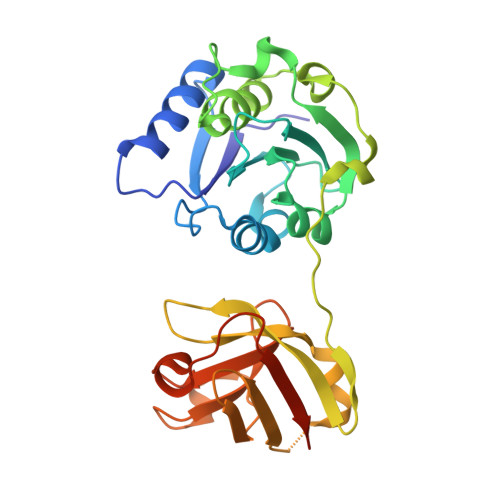S-Adenosyl Methionine Cofactor Modifications Enhance the Biocatalytic Repertoire of Small Molecule C-Alkylation.
McKean, I.J.W., Sadler, J.C., Cuetos, A., Frese, A., Humphreys, L.D., Grogan, G., Hoskisson, P.A., Burley, G.A.(2019) Angew Chem Int Ed Engl 58: 17583-17588
- PubMed: 31573135
- DOI: https://doi.org/10.1002/anie.201908681
- Primary Citation of Related Structures:
6RYZ, 6RZ2 - PubMed Abstract:
A tandem enzymatic strategy to enhance the scope of C-alkylation of small molecules via the in situ formation of S-adenosyl methionine (SAM) cofactor analogues is described. A solvent-exposed channel present in the SAM-forming enzyme SalL tolerates 5'-chloro-5'-deoxyadenosine (ClDA) analogues modified at the 2-position of the adenine nucleobase. Coupling SalL-catalyzed cofactor production with C-(m)ethyl transfer to coumarin substrates catalyzed by the methyltransferase (MTase) NovO forms C-(m)ethylated coumarins in superior yield and greater substrate scope relative to that obtained using cofactors lacking nucleobase modifications. Establishing the molecular determinants that influence C-alkylation provides the basis to develop a late-stage enzymatic platform for the preparation of high value small molecules.
- Department or Pure and Applied Chemistry, University of Strathclyde, 298 Cathedral Street, Glasgow, G1 1XL, UK.
Organizational Affiliation:

















